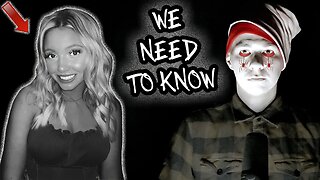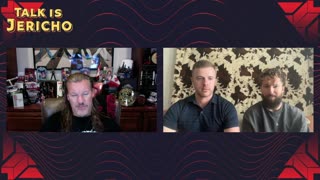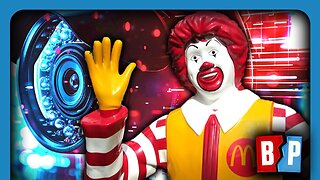Healthy Eating for Hormonal Balance
Healthy Eating for Hormonal Balance with Organic food reading ingredient labels is smarter shopping, Learn to read labels and teach your children to read labels. Avoid foods that lower testosterone.
Testosterone deficiency is a result of multiple potential causes for example the use of birth control pills or antidepressants, consuming soy products, a vegetarian diet, and various psychological and environmental factors. You control what you buy at the store and what you eat. Start making better decisions for you and your family.
Common Symptoms of a Hormonal Imbalance?
• Depression, anxiety, or irritability
• Muscle weakness, tenderness, stiffness, or pain
• Fatigue and weakness
• Loss of memory
• Difficulty concentrating
• Trouble sleeping
• Swelling in the joints
• Loss of bone or muscle density
• Weight gain, particularly belly fat
• Reduced sexual libido/lack of sex drive
• Erectile dysfunction
• Unexplained sweating
• Changes in appetite or thirst
• Changes in heart rate
• Sensitivity to heat and cold
• Thinning hair
• An inability to build lean muscle, even when exercising
Even though testosterone is an androgen, or “male hormone,” women’s bodies do make and need testosterone, albeit, not as much as men, and for different things than men do. Unlike being necessary in vast amounts to provide for the development of “maleness” in men, in women, testosterone is necessary for: fertility, sex drive, red blood cell production, muscle mass and fat distribution. When a women is experiencing low testosterone, all of the above can be negatively affected.
The signs and symptoms of low testosterone in woman include
:
• Feeling tired or sluggish
• Weakness
• Reduced sex drive
• Decreased sexual satisfaction
• Vaginal dryness
• Disturbed Sleep
• Weight gain
• Mental fog
• Loss of bone density
Testosterone, one of the major male sex hormones, plays a big part in men’s emotional health. Testosterone levels in both sexes increase during puberty. In men, testosterone levels naturally decrease after the age of about 30, and by the age of 50 testosterone may be significantly reduced. If your testosterone drops below the range considered healthy, you may see symptoms including low energy, depression, and mood swings. Simple hormone replacement therapy treatments, available in many formats, including gels, patches, injections and oral medications, can dramatically improve your mood. Raising your testosterone levels back to normal will also bring increased vitality to your libido and may raise your energy quotient overall.
Signs of Low Testosterone for men
:
• Depression and anxiety
• Fatigue, amotivation, and low drive
• Reduced sexual desire and activity
• Decreased spontaneous erections or erectile dysfunction
• Infertility
• Muscle weakness
• Reduced bone density
• Hot flushes or sweats
• Lowered confidence
• Poor concentration
.
• Sleep disturbances
• Mild unexplained anemia
• Increased body fat
Symptoms of Hormonal Imbalance In Children
• Unexplained weight loss or gain
• Thinning of hair / Fragile nails
• Fatigue / Muscle weakness
• Failure to meet growth milestones
• Dry skin
• Headaches
• Heightened thirst or hunger
Psychological issues include:
• Irritability
• Mood swings
• Anxiety
• Poor Concentration
• Hyperactivity
check out:
www.HormonePsychology.com
www.CallDrSteve.com
www.ThePhoneShrink.com
MEDICAL DISCLAIMER
INTRODUCTION:
The information provided by Psychological Mobile Services and Dr. Steven Hannant, PsyD, MSCP., is for general informational purposes only. All information is provided in good faith, however we make no representation or warranty of any kind, express or implied, regarding the accuracy, adequacy, validity, reliability, availability or completeness of any information on this site.
Under no circumstances shall we have any liability to you for any loss or damage of any kind incurred as a result of the use our educational information. Your use of the site and your reliance on any information on the site is solely at your own risk.
MEDICAL DISCLAIMER:
Psychological Mobile Services and Dr. Steven Hannant, PsyD, MSCP., cannot and does not contain medical advice. The medical information is provided for general information and educational purposes only, and is not a substitute for professional medical advice.
Accordingly, before taking any actions based upon such information, we encourage you to consult with the appropriate medical professionals. We do not provide any kind of medical advice. The use or reliance of any information contained from Psychological Mobile Services and Dr. Steven Hannant, PsyD, MSCP., is solely at your own risk.
-
 33:49
33:49
Degenerate Jay
14 hours agoThe Most Underrated Bond Movie? 007 Tomorrow Never Dies - Movie Review
17.8K11 -
 8:00
8:00
Misha Petrov
22 hours agoWhy The Left Is CANCELLING And BLOCKING Celebrities
35.5K113 -
 13:37
13:37
ryanhoguepassiveincome
21 hours ago $0.01 earnedAmazon FBA Product Research Tutorial for 2024
23.3K1 -
 24:43
24:43
Crime Circus
19 hours agoIdaho 4 Mysteries!! Bryan Kohberger Investigation! Moscow Idaho Documentary
31.6K9 -
 19:16
19:16
MYLUNCHBREAK CHANNEL PAGE
18 hours agoThe Old World is in The Catacombs? - Part 2
34.6K45 -
 5:48
5:48
Chris Jericho
14 hours agoTalk Is Jericho Highlight: Are You Kidding TV x NBA x MLB
18K -
 5:02
5:02
Tactical Advisor
20 hours agoHUGE UPDATE! ATF Lost Pistol Brace Rule
30.6K8 -
 1:02:07
1:02:07
Man in America
20 hours agoThey Know Trump Will Win & They'll UNLEASH CHAOS After Nov. 5 w/ Tom Renz
55.6K165 -
 58:11
58:11
The Why Files
3 days agoThe Search for Noah's Ark | Giants & Aliens in the Book of Enoch
68.5K82 -
 13:42
13:42
Breaking Points
2 days agoMcDonalds Surveillance PRICE FIXING To Gouge Customers
46.9K33